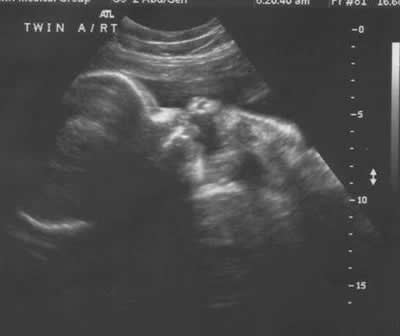Feeling Your Baby Move – All You Need To Know
 If this is your first pregnancy, then you will probably only start to feel your baby kick or move until between the 16th and 22nd week of your pregnancy. It is also common for women who have had previous pregnancies to feel their baby move before first time mothers – sometimes as early as 13 weeks, although this is not always the case.
The amazing thing is that he/she would have started moving about from the 7th or 8th week of your pregnancy already, but your baby would have been much too small for you to feel the movement.
If this is your first pregnancy, then you will probably only start to feel your baby kick or move until between the 16th and 22nd week of your pregnancy. It is also common for women who have had previous pregnancies to feel their baby move before first time mothers – sometimes as early as 13 weeks, although this is not always the case.
The amazing thing is that he/she would have started moving about from the 7th or 8th week of your pregnancy already, but your baby would have been much too small for you to feel the movement.
What Does It Feel like When Your Baby Moves?
There have been many different descriptions of what it feels like to feel your baby move for the first time:- popcorn popping
- a goldfish swimming around
- butterflies fluttering.
How Often Should You Feel Your Baby Move?
When you first start to feel your baby move, you may only notice a few kicks for the first few days, and the space between kicks may be fairly long. This is because this early on your baby may not be strong enough to make any real impact. As your pregnancy develops into the second trimester the movement will become stronger and more regular as your baby gets stronger and bigger. At first the kicks you notice will be few and far between. It is also probably not such a good idea to compare notes with other pregnant women, as each pregnancy is different and each baby develops at his/her own rate and pattern of activity. You should at least feel the baby move every day.Keeping Track Of Baby’s Movement
Once you’re feeling kicks on a regular basis, usually around the 27th week of your pregnancy, you should start to take special attention to them and let your practitioner know right away if you ever notice a decrease in your baby’s movement. Less movement from your baby may be an early signal a complication and it is best to get is seen too sooner rather than later. Once you’re in your third trimester your health care provider may recommend that you spend some time each day counting your baby’s kicks. There are lots of different ways to do these “kick counts,” so ask for specific instructions. One common method is: Choose a time of day when your baby tends to be active, and you will also want to be doing your kick counts around the same time each day. Sit quietly or lie on your side so you won’t get distracted. Time how long it takes for you to feel ten distinct movements. If you don’t feel ten movements in two hours, stop counting and call your midwife or doctor. Remember that when you are in your late second or third trimester that if there is any sign that your baby has not moved, or that the movement has decreased, you must contact your health care provider ASAP!Feeling Baby Move



